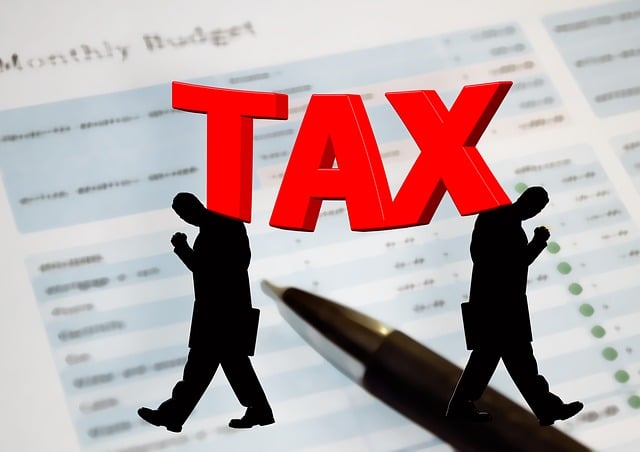Clever Techniques to Defer Capital Gains and Ordinary Income Taxes… Maybe Too Clever
If you currently own your own practice or are aspiring to do so, you are betting on yourself and your ability to navigate to a better future. Why accept the risk and responsibility of owning a practice today?
It comes down to being able to shape your own destiny. You want the opportunity to be in charge of your future and have the ability to increase your income and provide security, peace of mind, and financial freedom.
You want a better life for you and your family.

The Game of Tax Reduction – Part 1 – Clever Techniques to Defer Capital Gains and Ordinary Income Taxes… Maybe Too Clever
However, anyone who has owned their own business for any length of time will tell you that this control comes with significant risk, liability, and responsibility.
I’ve been there; the price is high. It takes many years of diligent study and a significant financial investment, which is even more true today than when I graduated from Baylor School of Dentistry in the 80s.
Financial debt coupled with years of effort give you the licensure to get in the game, but this is just the beginning. Evolving the practice and building replacement revenue streams is the next significant reinvestment phase after stabilization of the business model.
After years of hard work, investment, and accepting significant debts, there is a strong pull to enjoy the lifestyle you’ve worked so hard to earn. Often, the journey through dental school conditions young practitioners to accept debt as a normal part of life, making it easy to leverage a high income to increase lifestyle—funded by easy access to credit.
You work longer hours to pay for your lifestyle and use whatever money is left over to reinvest in growing your business. However, that extra money eventually becomes harder to find.
As your income increases, so do your taxes.
One of the oldest rules in tax-planning is to defer taxes whenever possible. “Don’t pay the tax until you have to” is the first strategy that many tax advisors learned. Tax deferral is the basis for the traditional retirement plan model. Tax deductions create incentives for people to put money into 401(k)’s and IRAs. Note the word here is “deferral” and not “savings.”
That is a very important distinction (that most miss in their desire to pay less in current tax liability).
Beware the conventional tax reduction models that are commonly sold to practitioners.
When you put your money into a qualified retirement plan such as an IRA, 401(k), defined benefit plan, or cash balance plan, you defer your taxes to a later date. However, when that date arrives, years from now, you will have to pay the tax liability at ordinary income tax rates.
Today’s tax rates are likely the lowest that most of us will experience in our lifetimes. The old rule that you were likely to be in a lower tax bracket when you retire was one of the primary reasons for tax deferral.
Another fallacy with traditional retirement plans is that you are putting your money in a “lock box” because you cannot access that money until you’re 59 1/2. What if you want to use the wealth you have accumulated to create more freedom in your life before then? Perhaps the opportunity arises where you could turn that savings into an active investment into your business, but again, due to the rules created to benefit Wall Street, your money is captive.
But that’s not all…
What about capital gains taxes on the sale of your practice?
Enter the Deferred Sales Trust.
It used to be thought that a tax deferred was almost as good as a tax avoided. A relatively long period of low interest rate returns has changed that to some degree. However, the deferral of a large capital gains tax from what might be a once-in-a-lifetime event (business or practice sale), still provides some strong incentives.
Here, you depend upon that sale and your ability to save or defer the tax on that money to allow you to do more investments. But here’s the problem. If you do this today, you set yourself up for an audit years down the road when you may not have the luxury of active income to bail you out. Then, you’ll potentially have to pay penalties, tax, and interest on what you didn’t pay previously. And you can bet that the person who sold you this tax-deferred sales trust is long gone!
Play these games at your own risk.
I am not your financial advisor or a tax attorney. I’m just telling you from my experience and all of the people I’ve dealt with over the decades to be wary of “opportunities” that sound too good to be true. I see too many people trying to elevate their lifestyle via tax mitigation schemes or strategies. Be very wary.
Instead, learn to build your capital base without the tax games. Businesses give you the best tax write-offs. Real estate is a close second. I don’t need a qualified retirement account with IRAs, 401(k)s, and others to get that tax mitigation.
And guess what? I have what I call unfettered money, capital with no rules or regulation. No one is governing me on how I can use it. The government can’t come to me in the future and tell me that I violated some kind of rule years ago. I’m not playing that game, and you don’t need to either.
So, what can you do?
The financial models used in the past are not going to work because of the massive debt and annual spending deficits that this country is addicted to having (the U.S. national debt is well over $31.38 trillion and counting).
You can ignore this and stick to the status quo or learn the skills necessary to stop abdicating your money to a financial advisor. Yes, it takes extra time and effort, but you may run out of money before your body gives up, and that’s not the goal here.
You can start by getting out of the market and self-directing your funds to alternative, tangible, hard assets. Next, make smart decisions by learning and understanding new processes when it comes to alternative investments. And you don’t need to do this alone. Conduct your due diligence to find reputable experts and surround yourself with a network of medical professionals like yourself trying to do the same thing.
This way, you can learn together, share information, and watch out for the many increasing schemes and scams out there.
ABOUT THE AUTHOR
When his young daughter was hospitalized with leukemia, Dr. David Phelps, DDS, was able to turn to his alternative investments, step away from his dental practice, and be by her side.

Dr. David Phelps, DDS
From this experience, he created Freedom Founders in 2012. This community helps dentists and other professionals take control of their retirement investments to produce passive cash flow, security and live life on their terms.

A Freedom Founders meeting.
To contact Dr. Phelps, visit www.freedomfounders.com.











